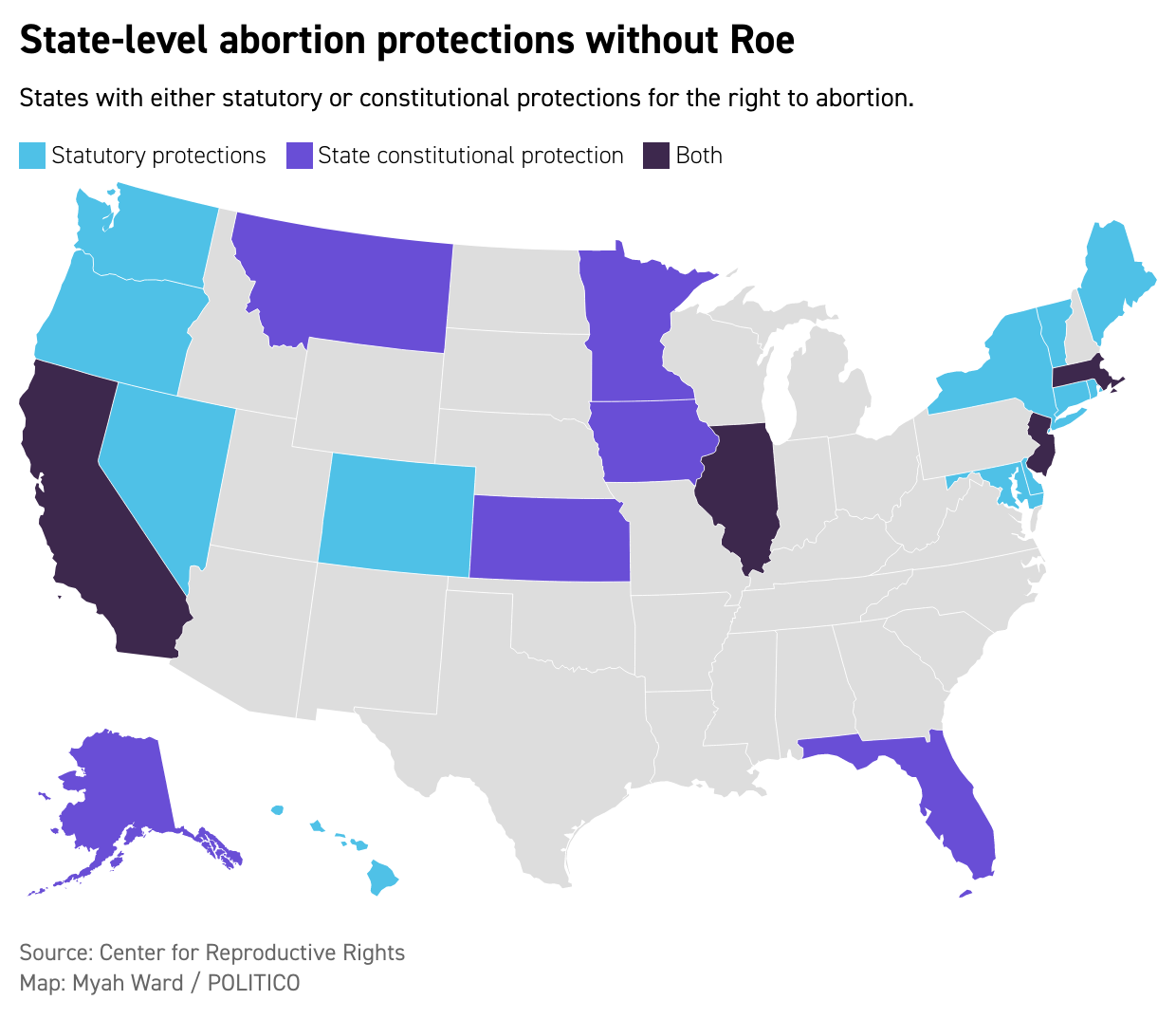| | |  | BY MYAH WARD | Presented by Connected Commerce Council | | 
| TREVOR NOAH: DON’T DO THIS — For the first time in six years, a sitting president will be at the White House Correspondents’ Dinner for the traditional roast by a comedian. “The Daily Show” host Trevor Noah was tapped for this year’s duties. POLITICO’s editorial cartoonist Matt Wuerker and Playbook author Ryan Lizza go through nerd prom history to find examples of what Trevor Noah shouldn’t do. From Don Imus’ jokes about Bill Clinton’s sex life to Barack Obama’s taunting of Donald Trump — who was attending as a guest in 2011 — Matt and Ryan break down the cringiest White House correspondents’ dinners of years past. Also: Listen to Ryan’s “Playbook Deep Dive” podcast episode with Tammy Haddad and other mainstays of WHCD weekend.
| | Welcome to POLITICO Nightly. We love the tips for sounding like a White House Correspondents’ insider in the brand-new POLITICO Weekend newsletter. Sign up here to get it in your inbox every Friday. Reach out with news, tips and ideas at nightly@politico.com. Or contact tonight’s author at mward@politico.com or on Twitter at @MyahWard.
| |
CONSIDER THE COST OF ALLOWING MONOPOLIES!
A message from Connected Commerce Council: Digital tools level the playing field and help small businesses compete with the big guys. Google Ads help small businesses find new customers efficiently, while online marketplaces provide access to millions of customers and guarantee two-day shipping. It's no wonder that 85% of small businesses say digital tools help them compete. Learn why blocking Tech has big consequences for small business. | | | | | THE ABORTION WARS IN BLUE STATES — Oklahoma Gov. Kevin Stitt will soon become the next red-state leader to sign a Texas-style, 6-week abortion ban into law. The red-state drive to diminish and eliminate abortion access before a likely June Supreme Court ruling on Mississippi’s 15-week abortion ban has been accompanied by a less-noticed stampede in Democratic states: Blue states are rushing to shore up their abortion protections in anticipation of an overturned or gutted Roe v. Wade. Just four months into 2022, 43 bills to protect access to legal abortion have been introduced in state legislatures, according to the Guttmacher Institute, a pro-abortion rights research organization, more than double last year’s number. Colorado and New Jersey have enacted abortion-access laws this year, joining the five other states and Washington, D.C., that have passed similar laws since 2018. This blue-state push has not been as large or successful as the red-state restrictions. In 2022, 73 bills have been introduced at the state level to ban all or most abortions. Right now, 16 states and the District of Columbia have laws that would protect the right to abortion should the 1973 landmark decision be overturned, according to Guttmacher. In four of these 16 states, this right is also protected under the state constitution — either through a state supreme court ruling or constitutional amendments.
| 
| “Something in the state constitution or a ruling by the state supreme court is more permanent than a bill passed through the legislature, because legislatures can always flip and pass new bills,” health care reporter Alice Miranda Ollstein said during a Slack chat with Nightly on these laws. Vermont, which has already protected the right to abortion through state law, is now attempting to pass a ballot measure to enshrine the right in the state constitution, Ollstein said. In Michigan, Democratic Gov. Gretchen Whitmer asked her state Supreme Court to take up an abortion case directly, hoping to establish a proactive right through her state constitution by challenging nearly century-old state law. There will likely be pressure — especially in an election year — for Democratic governors to make other attempts to protect the right to an abortion in their states regardless of what happens with Roe, Ollstein said. And sometimes the state legislature and the state courts are in conflict, Guttmacher’s state policy analyst told Nightly. Look to Florida, another state where the Supreme Court has protected the right to abortion. Republican Gov. Ron DeSantis just signed his own 6-week abortion ban into law there because the court’s language was “vague enough to leave wiggle room” to still impose restrictions, Ollstein said. A similar dynamic is likely to play out in states like Iowa and Kansas, where the right to abortion is protected through the state constitution according to state courts, but the state legislatures are expected to try to push back. “There will be years and years of court battles ahead where courts will try to define exactly what a right to an abortion means,” Ollstein said. Some Democratic-led states have gone beyond trying to provide abortion access just for their own residents. California has passed a law, and is in the process of passing others, that not only provides financial support to improve access to abortion, but also bolsters its role as a safe haven for out-of-state travelers in need of care. Some blue states are just now wading into this complicated legislative territory, Nash said, even as advocates began warning years ago about the possibility that Roe would be overturned.
| |
| | INTRODUCING DIGITAL FUTURE DAILY - OUR TECHNOLOGY NEWSLETTER, RE-IMAGINED: Technology is always evolving, and our new tech-obsessed newsletter is too! Digital Future Daily unlocks the most important stories determining the future of technology, from Washington to Silicon Valley and innovation power centers around the world. Readers get an in-depth look at how the next wave of tech will reshape civic and political life, including activism, fundraising, lobbying and legislating. Go inside the minds of the biggest tech players, policymakers and regulators to learn how their decisions affect our lives. Don't miss out, subscribe today. | | | | | | | — Evidence of Trump officials’ meddling puts trust spotlight on CDC: New evidence of political interference in the CDC’s early pandemic response raised fresh questions in Congress today about how to strengthen public trust in the agency. The hearing followed the release of a report that found employees at four public health agencies did not report their concerns about the political interference they saw in their workplace, some because they “feared retaliation.” — Second Oath Keeper pleads to seditious conspiracy: Brian Ulrich, one of 11 Oath Keepers facing the gravest charges to emerge from the Jan. 6 attack, pleaded guilty today to seditious conspiracy and obstruction of Congress’ electoral vote-counting session. His and others’ cooperation could arm prosecutors with substantial evidence as they work to secure the convictions of the remaining defendants, including Oath Keepers founder Stewart Rhodes III. — Pentagon says Russia ‘several days’ behind objectives in Donbas: Russia has been hobbled by logistical issues and Ukrainian resistance, the Pentagon said today, and ground forces are making “plodding, uneven progress” in the southeastern region , according to a senior defense official. Moscow aims to attack Ukrainian forces in Donbas from the north, east and south out of Mariupol, the official said, adding that Russian forces are falling behind on all fronts. — ‘Rolling Thunder’ has downtown Ottawa on edge: “Rolling Thunder,” an unaffiliated offshoot of an American movement of the same name that advocates for American prisoners of war, insists it comes in peace — and won’t stay long. But the people who lived through a debilitating three-week occupation of several blocks near Parliament Hill are bracing for the worst.
| | OIL SANCTIONS, MEET URANIUM SANCTIONS — Germany has thrown its weight behind demands to sanction uranium imports from Russia and other parts of President Vladimir Putin’s civil nuclear industry in retaliation for his invasion of Ukraine, five EU diplomats told POLITICO. Such a move could hit the supply of uranium that fuels the bloc’s Russian-built power reactors, as well as new nuclear projects managed by Russia’s Rosatom Western Europe subsidiary, based in Paris. Four of the diplomats said sanctioning Russia’s nuclear industry was discussed in a meeting with EU ambassadors and the Commission earlier this week, with Poland and the Baltic countries leading the calls to act. The fact that Germany, the EU’s economic powerhouse, is now on board makes the move significantly more likely. A wide range of MEPs have also asked for nuclear to be included in EU sanctions.
| |
CONSIDER THE COST OF ALLOWING MONOPOLIES!
A message from Connected Commerce Council: Small business gets a big hand from Tech. Digital tools like Google Business Profile, Instagram Ads and online marketplaces unlock new business opportunities and greater growth. They help smaller shops get noticed and compete with national brands. That’s why 92% of small businesses use digital services to connect with customers. Discover all the ways Tech helps drive small business success. | | | | | | |
| | | | 
| OHIO’S RIGHT TURN — The race to replace retiring Sen. Rob Portman (R-Ohio) is the most expensive in the nation thus far, as a crowded field of wealthy candidates and those with billionaire benefactors has run up the tab. The contest has also set up a major test of former President Donald Trump’s influence in the GOP: His late endorsement of author J.D. Vance seeks to elevate a candidate who had been struggling until the final weeks of the campaign. The May 3 primaries in Ohio and Indiana kick off an eight-week sprint in which the majority of states will hold their midterm nomination contests. In the latest episode of his Inside the Forecast video series, senior campaigns and elections editor Steven Shepard explains why, no matter who wins the primary, he rates the Senate race in Ohio, once the quintessential swing state, as “Likely Republican”: “Since Barack Obama in 2012, only one Democrat has managed to win a statewide election in Ohio.” Did someone forward this email to you? Sign up here.
| |
| | DON'T MISS ANYTHING FROM THE 2022 MILKEN INSTITUTE GLOBAL CONFERENCE: POLITICO is excited to partner with the Milken Institute to produce a special edition "Global Insider" newsletter featuring exclusive coverage and insights from the 25th annual Global Conference. This year's event, May 1-4, brings together more than 3,000 of the world’s most influential leaders, including 700+ speakers representing more than 80 countries. "Celebrating the Power of Connection" is this year's theme, setting the stage to connect influencers with the resources to change the world with leading experts and thinkers whose insight and creativity can implement that change. Whether you're attending in person or following along from somewhere else in the world, keep up with this year's conference with POLITICO’s special edition “Global Insider” so you don't miss a beat. Subscribe today. | | | | | | |
|
| | Follow us on Twitter | | | FOLLOW US | | |
| |

No comments:
Post a Comment
Note: Only a member of this blog may post a comment.